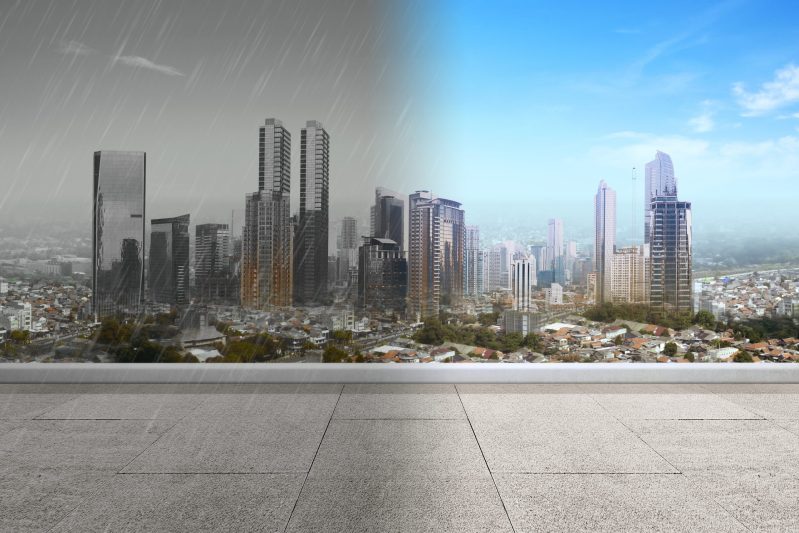How can we prepare for the risk from climate change?
Climate change is happening and here to stay
Whilst planet Earth continues its orbit through space, we witness and experience changes in our daily weather conditions and patterns. Scientific observations and weather forecasts closely monitor and record the effects of global warming and the visible impact on our environment.
Evidence of climate change are heatwaves, droughts becoming longer and more severe, tropical storms becoming more intense with devastating tornados, hurricanes, and cyclones sweeping across the oceans and moving inland leaving behind a trail of severe destruction, sea levels rising and threatening coastal communities and ecosystems, and more.
With this destruction, sadly, human and animal life are lost, property and infrastructure damaged, and in many instances pollution and contamination caused. This kind of devastation and the inevitable threat of future and harsher changes in climatic conditions, are sending waves of concern to the insurers and reinsurers who will ultimately face a barrage of insurance claims.
Risk from climate change leaves us vulnerable
The reality of climate change became evident in the recent floods in the province of KwaZulu-Natal. A frightening, unforeseen and unpredictable experience that literally left thousands of people displaced and homeless, billions of Rands in damage to properties, structures (including infrastructure), severe interruption of businesses, port blockages, loss of life (with over 400 people killed), medical facilities having been compromised, and the future knock-on effect of delays and shortages.
The aftermath of this disaster is that it will take many months, if not years, to recover and to restore the affected areas. This tragedy will never be forgotten and will go down in history as being one of the worst catastrophes to hit the province in 60 years, when a similar disaster struck the region.
Expert insurance advice now, or pay dearly in future
In light of these devastating floods it is of paramount importance to once again impress upon clients that whilst insurance may be considered by many as a “grudge purchase”, it is one of those intangible necessities that can come to the rescue when misfortune or disaster strikes. It is equally important to emphasise having a broker on your side for professional and sound technical advice and guidance.
With this scenario in mind, we sifted through the different classes of engineering insurance and unpacked some of the specific policies that would need to be considered when addressing the risk exposure of floods, inundation, and interruption:
- Comprehensive Energy Insurance (Commercial Solar PV)
- Contractors All Risks and Construction Industry Public Liability Insurance
- Advanced Consequential Loss / Delay in Start-Up
- Electronic Equipment / Applied Electronics
- Plant All Risks / Construction Plant and Equipment
Insurance industry also feeling the heat
In each of the above policies your risks should be adequately protected. However, with the impact of climate change, insurers and reinsurers are likely to review their exposures and, in some instances, possibly consider their options. Ultimately it can be foreseen that they will impose certain limitations and restrictions as well as more onerous requirements on the insured person or parties.
It is for this reason, that we stress the importance of having a broker on board to assist you and offer you sound technical advice and guidance. This will ensure that you have the correct policy with adequate protection in circumstances such as those which have occurred in KwaZulu-Natal.
Climate change is everyone’s concern
Putting the disaster in KwaZulu-Natal aside, it is clear that climate change is drawing considerable concern from around the globe. Storm and flood disasters are not the only perils under the radar. There are, as we have seen in many countries, extreme cases of heatwaves, drought and crop failures, migration of people, water shortages, outbreaks of all kinds of diseases, all of which have a compound effect on society and economies.
We can still save our planet, but we need to be more proactive. We need to adapt and prepare ourselves for eventualities and guard against the impact of climate change by protecting and looking after what we still have.
Collectively we need to find ways and means to combat climate change as well as become more climate change prepared.

